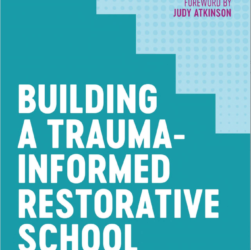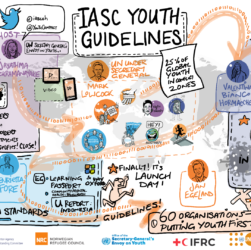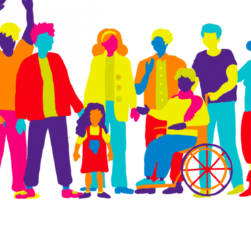


China urged the U.S. to ratify the United Nations (UN) Convention on the Rights of the Child (CRC) as soon as possible and take practical actions to protect children’s rights, Foreign Ministry spokesperson Mao Ning said on Thursday.

The COVID-19 pandemic has significantly impacted the mental health and wellbeing of individuals worldwide, including students and educators in schools. The pandemic has disrupted daily routines, caused social isolation, and increased stress and anxiety levels for many people. In the wake of the pandemic, there is an urgent need for mental health support in schools to help students and educators cope with the challenges and uncertainties of the post-COVID world.

“Building a Trauma-Informed Restorative School” by Joe Brummer is a comprehensive guidebook that provides educators with the skills and approaches needed to create a trauma-informed and restorative school culture. The book is organised into six sections, each covering a different aspect of building a trauma-informed and restorative school.

‘All children should learn together, wherever possible, regardless of any difficulties or differences they may have.’ These are the principles adopted at the UNESCO World Conference on Special Needs Education held in Salamanca, Spain.

Bullying is a serious issue affecting many students in schools worldwide. In recent years, there has been an increasing focus on using online anonymous reporting tools to address bullying and create a safe and inclusive learning environment. This post will discuss the use of online anonymous reporting tools for anti-bullying and their potential benefits and limitations.

The Inter-Agency Standing Committee (IASC) Guidelines are principles and standards that provide a framework for coordinating humanitarian assistance in complex emergencies. The IASC is a unique forum of the United Nations (UN) and non-UN humanitarian agencies established in 1992 to improve the effectiveness of humanitarian response in crises. The Guidelines were first published in 2005 and have been updated several times.

The Core Humanitarian Standards (CHS) is a set of principles and guidelines developed by the humanitarian sector to ensure that humanitarian assistance is provided consistently, accountable, and effectively. The CHS was developed by the Sphere Project, a collaboration of humanitarian agencies and experts, and was launched in 2014. The CHS is based on the belief that people affected by crises have the right to life with dignity and receive assistance tailored to their needs.

Microlearning is a teaching and learning approach that focuses on delivering small, bite-sized pieces of information in a format that is easy to consume and retain. This approach is gaining popularity in both pedagogy and professional development for teachers. But what are the benefits of microlearning for teachers? How can it be used as an effective tool for continuing professional development?

Monitoring the psychological health of students in school is essential for ensuring that they are happy, healthy, and able to reach their full potential. Psychological health refers to an individual’s mental and emotional wellbeing, including their ability to cope with stress, manage their emotions, and maintain positive relationships with others. Schools are responsible for monitoring their students’ psychological health and providing support and interventions when needed.

School inclusion ensures that all students, regardless of their background, abilities, or needs, can fully participate and succeed in school. Inclusion is about creating a supportive and welcoming environment where all students feel valued and respected, and their strengths and needs are recognised and addressed. In international schools, inclusion takes on a unique dimension due to the diverse student population and global context in which they operate.